- Home
- Lisa Gardner
Never Tell
Never Tell Read online
ALSO BY LISA GARDNER
NOVELS
The Perfect Husband
The Other Daughter
The Third Victim
The Next Accident
The Survivors Club
The Killing Hour
Alone
Gone
Hide
Say Goodbye
The Neighbor
Live to Tell
Love You More
Catch Me
Touch & Go
Fear Nothing
Crash & Burn
Find Her
Right Behind You
Look for Me
SHORT WORKS
The 7th Month
3 Truths and a Lie
The 4th Man
The Guy Who Died Twice
An imprint of Penguin Random House LLC
penguinrandomhouse.com
Copyright © 2019 by Lisa Gardner, Inc.
Penguin supports copyright. Copyright fuels creativity, encourages diverse voices, promotes free speech, and creates a vibrant culture. Thank you for buying an authorized edition of this book and for complying with copyright laws by not reproducing, scanning, or distributing any part of it in any form without permission. You are supporting writers and allowing Penguin to continue to publish books for every reader.
DUTTON and the D colophon are registered trademarks of Penguin Random House LLC.
LIBRARY OF CONGRESS CATALOGING-IN-PUBLICATION DATA
Names: Gardner, Lisa, author.
Title: Never tell : a novel / Lisa Gardner.
Description: New York, New York : Dutton, an imprint of Penguin Random House LLC, [2019]
Identifiers: LCCN 2018042977 | ISBN 9781524742089 (hardcover) | ISBN 9781524742096 (ebook)
Subjects: LCSH: Murder—Investigation—Fiction. | GSAFD: Suspense fiction.
Classification: LCC PS3557.A7132 N48 2019 | DDC 813/.54—dc23
LC record available at https://lccn.loc.gov/2018042977
This book is a work of fiction. Names, characters, places, and incidents either are the product of the author’s imagination or are used fictitiously, and any resemblance to actual persons, living or dead, business establishments, events, or locales is entirely coincidental.
Version_1
CONTENTS
Also by Lisa Gardner
Title Page
Copyright
Dedication
Chapter 1
Chapter 2
Chapter 3
Chapter 4
Chapter 5
Chapter 6
Chapter 7
Chapter 8
Chapter 9
Chapter 10
Chapter 11
Chapter 12
Chapter 13
Chapter 14
Chapter 15
Chapter 16
Chapter 17
Chapter 18
Chapter 19
Chapter 20
Chapter 21
Chapter 22
Chapter 23
Chapter 24
Chapter 25
Chapter 26
Chapter 27
Chapter 28
Chapter 29
Chapter 30
Chapter 31
Chapter 32
Chapter 33
Chapter 34
Chapter 35
Chapter 36
Chapter 37
Chapter 38
Chapter 39
Chapter 40
Chapter 41
Chapter 42
Acknowledgments
About the Author
In memory of Wayne Rock, exceptional detective and human being.
We miss you, my friend.
CHAPTER 1
EVIE
BY THE TIME I PULL my car into the garage, my hands are shaking on the wheel. I tell myself I have no reason to feel so nervous. I tell myself I’ve done nothing wrong. I still sit there an extra beat, staring straight ahead, as if some magic answer to the mess that is my life will appear in the windshield.
It doesn’t.
With a bit of care, I can still slide out of the driver’s seat. I’m bigger, but not that much bigger. I fight more with my bulky coat and the strap of my oversized purse, as I ease out from behind the steering wheel. Conrad bought me the purse as a Christmas gift last year. From Coach. Real leather. At least a couple hundred dollars. At the time, I’d been so excited I’d thrown my arms around him and squealed. He’d laughed, told me he’d seen me eyeing the bag in the store and had just known he had to get it for me.
When I’d hugged him then, he’d hugged me back. When I’d laughed that day, and giddily opened up the huge, gray leather bag to explore all the compartments, he’d laughed with me.
Christmas morning. Nearly one year ago.
Had we hugged since? Laughed since?
The bulge in my belly would argue we’d found some way to connect, and yet, if not for the streams of bright colored lights and gaudy decorations covering my neighborhood, I’m not sure it would feel like the holidays at all. As it is, we’re one of the last undecorated houses on the block. A wreath on our door; that’s it. Each weekend, we promised to get a tree. Each weekend, we didn’t.
I take my time hefting my purse over my shoulder. Then I turn and face the door leading from the garage into the house.
Dead man walking, I think. And something crumples inside me. I don’t cry. But I’m not sure why.
The door is open. Cracked slightly. As if on the way out, I didn’t pull it hard enough shut. Letting out all the heat, my father would say, which causes me a fresh pang of pain.
I push through the interior door, close it firmly behind me. That’s it. I’m home. Standing in the mudroom. Another day done. Another night to begin.
Hang up the purse. Shrug out of the coat. Ease off the boots. Jacket on the coatrack. Shoes on the mat. I fish my cell phone out of my bag and set it up on the side table to charge. Then, I take a final moment.
Breathe in. Breathe out.
Listening for him.
The kitchen? He could be sitting at the table. Waiting in front of a cold dinner. Or pointedly taking the last bite. Or maybe he’s moved into the family room, ensconced in his recliner, feet up, beer in hand, eyes glued to ESPN. Sunday is football. Go Patriots. I’ve lived in Boston long enough to know that much. But Tuesday night? I never got into sports. He’d watch; I’d read. Back in the days when we spent so much time glued together, it seemed natural to also have some time apart.
I don’t hear the clinking of silverware from the kitchen. Nor the low rumble of TV from the family room.
Door open, I remember. And my left hand flattens on the relatively small, but noticeable, curve of my belly.
The hall leads me to the kitchen. A spindly table sits in front of the back window. No sign of dinner. But then I notice a rinsed plate lying neatly in the sink.
Breathe in. Breathe out.
I should have a story, I think. An excuse. A lie. Something. But in the growing silence, my thoughts churn more, my brain spinning wildly.
Dead man walking. Dead woman walking?
I’m going to vomit. I can blame it on the baby. You can blame anything on pregnancy. I’m
sick, I’m tired, I’m stupid, I lost track of time. Baby brain, pregnancy hormones. For nine whole months, nothing has to be my fault. And yet . . .
Why did I come home tonight? Except, of course, where else do I have to go? Ever since I first met Conrad ten years ago . . . He noticed me. He saw me. He forgave me.
And I loved him.
Ten whole years, I have loved him.
I leave the kitchen. It’s small and, like the rest of the 1950s house, still in desperate need of updating. We purchased the place with hope and aspiration. Sure it sat on a postage stamp yard, and each room was tinier than the last, but it was ours. And being young and handy, we’d fix it up, open it up, then sell it for oodles of money.
Now I walk down a narrow hallway where half the wallpaper hangs down in pieces and do my best not to notice.
Family room. Den, really. With Conrad’s beloved La-Z-Boy, a modest sofa, and of course, an enormous flat-screen TV. The recliner is empty. The TV is off. The room is empty.
Door open, I remember again.
Our garage fits only a single vehicle, and even that is a perk in a Boston neighborhood. Conrad parks his Jeep on the street. Which I check now. Because I’d spotted it pulling into the driveway and, yes, there it is. Black Jeep. Situated at the curb straight outside. A prime spot I can already imagine he was thrilled to get, as even with parking permits, there’s more demand than supply. Hence his kindness in giving me the garage.
It’s okay, honey. I don’t want you walking down the street alone at night. I like knowing that you’re safe.
Dead woman walking. Dead woman walking.
Don’t vomit now.
And then . . .
Then . . .
“Door open,” I whisper. And I finally notice what I should’ve noticed from the very beginning.
* * *
—
SMELL. I’D BEEN listening for the sound of my husband. The clatter of silverware in the kitchen. The thump of his recliner banging back in the family room. But there aren’t any sounds. No sounds at all.
The house is hushed. Quiet. Still.
As if it were empty.
Smell.
The stairs leading to the second floor are like the rest of the house, narrow, confining, creaky. Conrad tightened the bannister three months ago. When I broke the news. When we both stood in our bedroom and stared at the little stick. My hands had been shaking so hard he’d had to take it from me.
I remember feeling ill then, too. Willing myself not to vomit, though it had been the near-constant queasiness that had led me to take the pregnancy test. A marriage is a mosaic of a thousand moments, a hundred precious memories. That day, watching his hands close around mine. Strong fingers, seamed with calluses. Steady, as they took the pregnancy stick away from me, held it closer to him.
I had that surreal feeling I sometimes get. Where I’m not present in my own life, but even all these years later, standing in my parents’ kitchen again. Holding the shotgun. Smelling all that blood.
And Conrad, being Conrad, looked right at me. Looked right into me.
“Evie,” he said. “You deserve this. We deserve this.”
I loved him again. Just like that. In that moment, I adored him. We held hands. He cried. Then I had to pull away to vomit for real, but that made us both laugh, and afterward he’d wiped my face with a washcloth and I’d let him.
A thousand moments. A hundred memories.
That pain again, deep inside me, as I lean heavily against the wall, away from the bannister I no longer trust, and work my way up the narrow staircase.
Smell.
The odor hits me hard now. Nothing faint, teasing, ambiguous. This is it. Had I known all along? Turning into the drive? Pulling into the garage? The interior door open, open, open.
What had my subconscious suspected, long before the rest of me had paid attention?
Upstairs, not the bedroom, but the second tiny room, Conrad’s office, looms to the left. That door is open, too.
Sounds to go with the smell. Sirens. Down the street. Growing louder. Coming closer. But of course.
My parents’ kitchen.
My husband’s office.
Blood.
Dark, viscous. A spray. A pool.
I can’t help myself. I’m sixteen. I’m thirty-two. I reach out. I touch the spot closest to me. I smear the red across my fingertip. I watch the way it fills in the whorls of my fingerprints.
My father. My husband.
Blood.
More noise. Banging. So far away. Shouts and demands and orders.
But up here, none of it matters. There is just me and this final moment with Conrad. His body fallen back into the desk chair, the back of his head sprayed on the wall behind him.
I fear what I will see on the computer screen before I even look. But I force myself to do it. Take it in. Register the images. This is my husband’s computer. This is what my husband was looking at before he died.
Harder banging now. The police. Responding to reports of shots fired. They will not be denied.
“It was an accident,” my mother whispers urgently in my ear. “Nothing but an unfortunate accident.”
I reach over to the computer. I close out the images. Then, because I have enough experience to know it won’t be enough, I pick up the gun from my husband’s lifeless hand. I curl my palm around the checkered grip. I slip my finger into the cold trigger guard.
And I start shooting.
* * *
—
WHEN THE POLICE finally burst through the door, I stand at the top of the stairs, both hands up, gun in plain view, while turning slightly so that the curve of my stomach can’t be denied.
“Drop the weapon, drop the weapon, drop the weapon!” the first officer shouts from the base of the stairs.
I do.
He scrambles up the stairs, cuffs in hands. I hope for his own sake that he doesn’t stumble against the bannister.
A marriage is a mosaic. A thousand moments. A hundred memories.
The officer twists my arms behind my back. He cuffs my wrists tight, pats me down as if expecting even more weapons, as more uniforms pour through the door.
“My husband,” I hear myself say. “He’s been shot. He’s dead.”
“Ma’am, is there anyone else present?”
“No.”
A thousand moments. A hundred memories.
“Ma’am, you have the right to remain silent. Anything you say can and will be used against you in a court of law. You have the right to speak to an attorney, and to have an attorney present during any questioning.”
The officer escorts me down the stairs, out of the house, away from my husband’s body.
“Do you think I’ll be allowed to plan the funeral?” I ask him.
He looks at me funny, then deposits me in the back of the patrol car on a hard plastic bench seat.
More cops. More sirens. The neighbors appearing to watch the show. I know what will come next. The trip to the police station. Where my hands will be swabbed for blood, tested for GSR. Fingerprinting. Processing.
Then, when my past appears on the computer screen . . .
“An accident,” my mother whispers again in the back of my mind. “Nothing but an unfortunate accident.”
I can’t help myself; I shudder.
She will come for me now, I think. And because of that, as much as anything else, I curl my hands around my belly and tell my baby, this fragile, fluttery life that hasn’t even had a chance yet, how sorry I truly am.
CHAPTER 2
D.D.
“OKAY. JUST LIKE WE’VE DONE before. I’ll head straight. Alex will cut left. Jack, you ready?”
Jack nodded. Sergeant Detective D. D. Warren took a steadying breath. Three of them. One target. How badly could things go wrong?<
br />
First step forward. Light tread, heel, toe, designed not to make a sound. Alex utilized the same strategy, heading sideways to intercept the line of retreat. They’d done this enough times to know that silence was the key. Alert their opponent too early, and that was it. She was both faster and—D.D. was beginning to suspect—smarter than the three of them put together.
Which made the situation particularly dire, given that it was D.D.’s favorite black leather boot at stake.
She eased into the dining room, where Kiko had wisely retreated beneath the table with her prize. So far, the best spotted dog in all the land was lying contentedly on the rug, chewing on the heel of D.D.’s shoe, as D.D. and Alex made their circular approach.
Five-year-old Jack had taken up position in the family room. His job: catch Kiko when she inevitably bolted from beneath the cherrywood table. They expected the dog would run toward Jack, her partner in crime. The two adults of the household, on the other hand . . .
A floorboard creaked beneath D.D.’s foot. She froze. Kiko looked up.
Time stood still. Detective and dog locked eyes, D.D. wearing one boot, Kiko holding the second between her paws.
Alex appeared in the left-hand doorway of the dining room. “Kiko! Release! Bad dog!”
Kiko grabbed the boot in her mouth and ran for it.
D.D. lunged to the right. An act of desperation, and she and the dog both knew it. Kiko, a Dalmatian–German shorthaired pointer mix who was all long legs and high energy, dodged the move effortlessly. Alex came charging from behind.
Kiko galloped straight for Jack, who cried out in boyish delight, “Roo, roo, roo!” right before he tossed Kiko’s favorite toy straight up into the air.
True to form, Kiko dropped the boot and leapt up for her stuffed hippo.
D.D. snatched her boot. Kiko caught her toy. Then Kiko and Jack were off, tearing around the family room in a whirlwind of puppy-boy energy.
“Damage?” Alex asked, coming to a halt beside her. He was still trying to catch his breath. For that matter, so was D.D.
She inspected her boot. The bottom of the heel showed signs of chewing. But the leather upper was still intact.

 Find Her
Find Her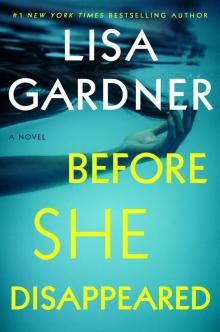 Before She Disappeared
Before She Disappeared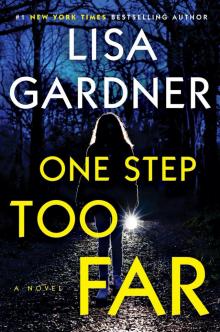 One Step Too Far
One Step Too Far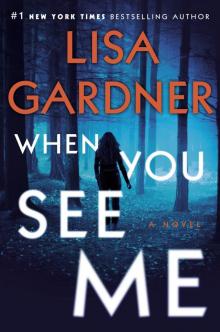 When You See Me
When You See Me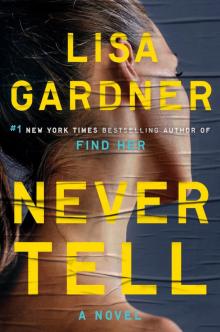 Never Tell
Never Tell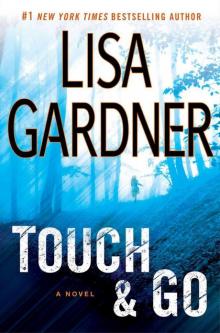 Touch & Go
Touch & Go The Survivors Club
The Survivors Club MacNamara's Woman
MacNamara's Woman Love You More: A Novel
Love You More: A Novel Gone
Gone The Perfect Husband
The Perfect Husband Maggie's Man: A Family Secrets
Maggie's Man: A Family Secrets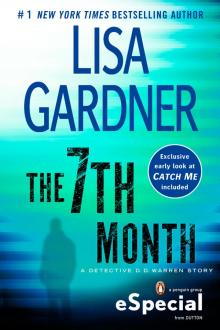 The 7th Month
The 7th Month The Neighbor
The Neighbor Hide
Hide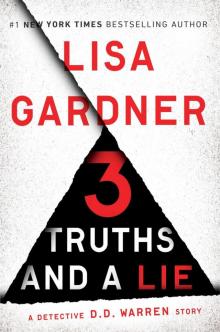 3 Truths and a Lie
3 Truths and a Lie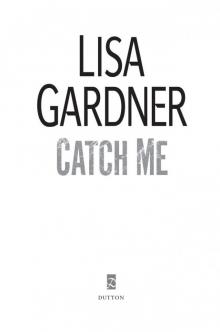 Catch Me
Catch Me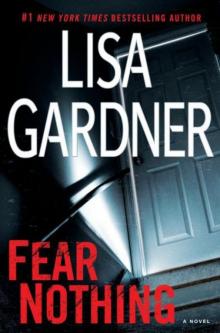 Fear Nothing: A Detective
Fear Nothing: A Detective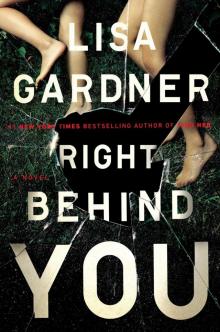 Right Behind You
Right Behind You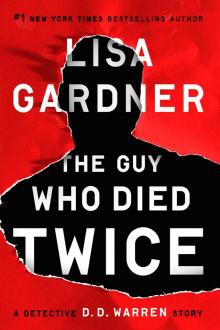 The Guy Who Died Twice
The Guy Who Died Twice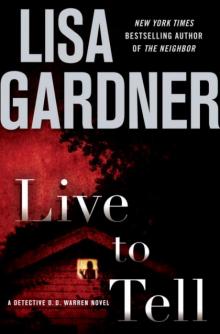 Live to Tell: A Detective D.D. Warren Novel
Live to Tell: A Detective D.D. Warren Novel Live to Tell
Live to Tell Maggie's Man: A Family Secrets Novel
Maggie's Man: A Family Secrets Novel The Other Daughter
The Other Daughter Alone
Alone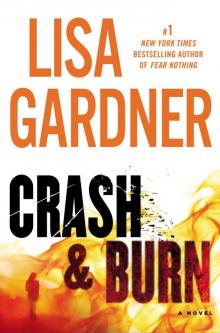 Crash & Burn
Crash & Burn The Detective D. D. Warren Series 5-Book Bundle
The Detective D. D. Warren Series 5-Book Bundle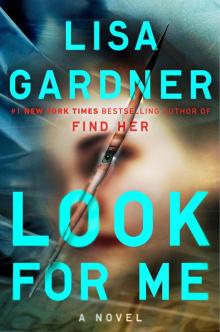 Look for Me
Look for Me Love You More
Love You More The FBI Profiler Series 6-Book Bundle
The FBI Profiler Series 6-Book Bundle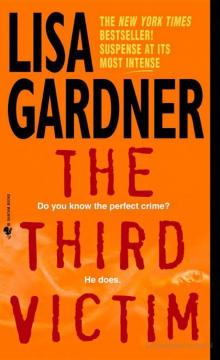 The Third Victim (Quincy / Rainie)
The Third Victim (Quincy / Rainie) Say Goodbye
Say Goodbye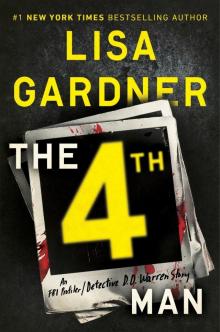 The 4th Man
The 4th Man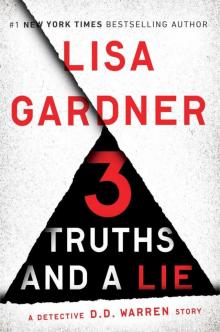 3 Truths and a Lie: A Detective D. D. Warren Story (Kindle Single)
3 Truths and a Lie: A Detective D. D. Warren Story (Kindle Single) Brandon's Bride
Brandon's Bride